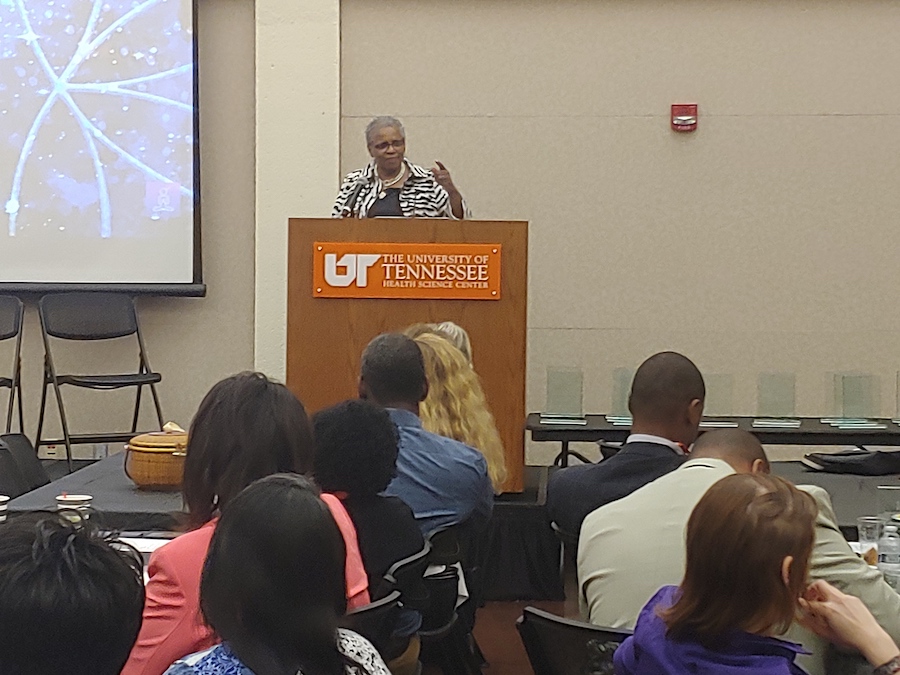
Mental health professionals, juvenile justice officials, educators, social services providers, and community leaders are meeting today at the University of Tennessee Health Science Center to cap three years of work by the UTHSC Center for Health in Justice Involved Youth and its partners to educate the community on the effects of trauma and adverse childhood experiences (ACEs) on the youth in Shelby County and to develop trauma-informed services to help them.
The summit closes a state grant titled Protecting Children from ACEs and Trauma (PCAT) and kicks off another three years of funding that will focus on the effects of ACEs on school-age children and how to help them succeed in a learning environment.
Altha Stewart, MD, director of the Center for Justice Involved Youth in the College of Medicine at UTHSC, opened the summit, thanking the partners for their work and challenging them for the future.
“We have the knowledge. We know a lot about evidence-based practices,” she said. “Now we have to ensure the skills in the people who provide services.”
With the PCAT grant, a collaborative partnership of community organizations was established to build awareness and understanding of the impact of ACEs on child development and to promote recovery from the damage of childhood adversity. The collaboration used the best available science and incorporated cultural and community-based initiatives to address the problem.
The work funded for the next three years will have resources to educate and inform providers and continue to screen young people who have experienced trauma, she said. “What I’d like to see is a community that has accepted the challenge, every day, everybody, of understanding the impact of trauma and doing something about it. It’s going to take everybody to understand that this is the important work of our future.”
Scott Strome, MD, executive dean of the UTHSC College of Medicine, commended the participants for their work, “because we recognize it is a gift to us.” He encouraged them to partner with the college on its mission to reach out into the community to improve health and health care for all in Shelby County.
It is unacceptable that health care is often defined by zip code, he said. The College of Medicine is drawing plans to extend access to health care to all residents of Shelby County.
“If we don’t make our community better than we are today, I don’t believe we have done anything,” Dr. Strome said. “At some point, you can’t just stop and wait for someone else to fix the problem.”
Shelby County Mayor Lee Harris said the county is committed to expanding trauma-informed services for its youth, evidenced by its funding to start a Youth Advocacy Center at UTHSC.
“I am so thankful for this partnership and everyone in this room,” he said.
Mary Rolando, MS, ACEs innovations director for the Tennessee Department of Children’s Services, encouraged the partners to coordinate available resources as they build trauma-informed schools. She said the work already completed has added to the statewide effort to help children affected by trauma.
“Thank you for all the contributions Memphis has made to this project,” she said. “To the extent Tennessee has been successful, it is because this community was ready to step up to the plate.”
